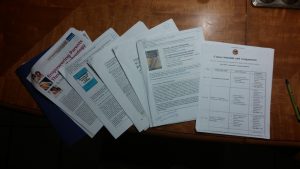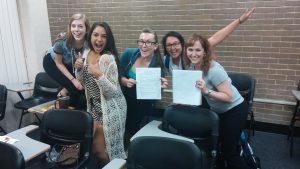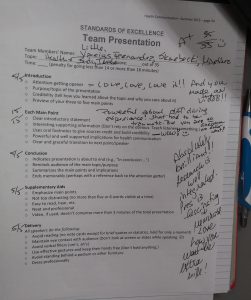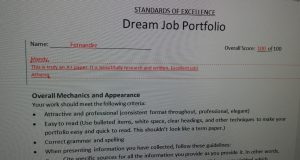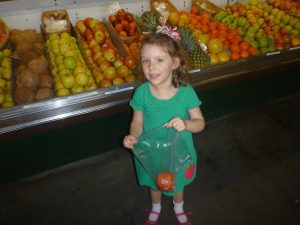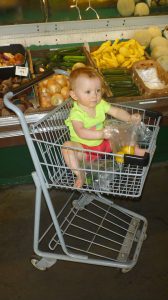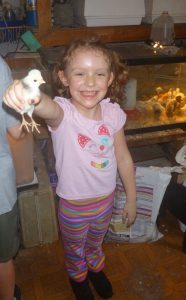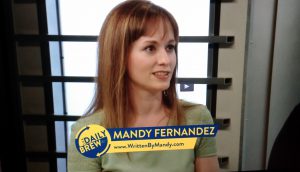7 Lessons Learned from My First Graduate School Class
Over a week ago I completed my first graduate school class. Remember how I shared how I’m going back to school after a fifteen-year break? Well I began my class in the middle of May. June was mostly a blur thanks to this intense, half-summer session. The course really pushed me to my academic limits.
Several people tried to warn me how tough it would be but I did not understand their words until I was about two weeks into the class. I spent four hours on a Saturday reading journal articles and trying to summarize them and put the sources into APA citation. I spent an average of at least two hours or more reading the textbook chapters. There went half my weekend. I was keeping up with the work load but there was not much time for fun or leisure.
Later I learned that my classmates just skimmed the articles. Wait, you mean I didn’t have to read all that science jargon? Several of them used a site called “Quizlet” that pulls out key terms from the textbooks and provides shortcuts for learning. This is the modern-day “Cliff’s Notes” that I remember using at certain times when I attended high school and took undergraduate classes.
That would be so much easier if I could just do that. Could I? Why was I spending 10:00 a.m. to 10:00 p.m. on a Saturday (no exaggeration there) reading, writing, researching and composing my paper and assignments for class?
The answer simply is because that was my choice. I’m not someone who wants to take the easy route. I want to see what I can learn by doing the work. I want to know what I’m capable of understanding and putting into practice.
Sure I may complain a little from time to time but the truth is that I signed up to return to school. No one pushed me or encouraged me to go. I just felt compelled within myself to take on an academic and professional challenge.
It’s not easy, I will say that. But I’m doing it. I have learned a lot about myself from completing this first course. Hopefully these lessons will carry me through more classes and finishing my studies:
1) Do the least favorable task first in order to be successful.
The thing that you dread the most, just do it first. Rid yourself of the headache. For me, this usually means reading the chapters to get them over with in the beginning. I don’t mind writing or conducting research. I rather enjoy that actually. But it’s sifting through paragraphs in a textbook that often make me want to be anywhere doing anything else. If I save reading for last and it’s nearly bedtime, my eyes will naturally drift to the closed position and I may not finish what I need to read. Through trial and error, I’ve found that reading the pages in the morning when I’m energized is more helpful. I take notes and then review them later.
2) Plan for reading, writing and completing assignments.
This one should be a no-brainer. Clearly a person must make time to do the class assignments. I knew this, sure! However, I didn’t realize how much would be required. I didn’t understand that I needed to block off hours or a whole day in my schedule to complete the homework. Now that I’ve finished a class, I realize I need to plan for an average of 4-6 hours per week per class to do well.
3) For team projects, make time to know your team members and find out how they relate to the class and assignments.
Teachers love to put students into teams. A part of me always rolls my eyes when this occurs. I worry about how I will interact with others who are different (and often much younger) than me. I fear that someone will be a slacker and I’ll be stuck doing most of the work or details. But I find that if I remain open and I really make time to get to know my team members, I’m surprised at how wonderful, diverse and interesting these other folks truly are. I’ve been involved in several team projects within the last year and I’m so thankful for the exposure to meet individuals who are doing work vastly distinct from my role. To help ease the transition of group work, I ask questions of my team members. I find out why each person is taking the class and what hobbies she or he has. I can typically learn something new about that person and relate it back to myself. By having real conversation with the people in teams, you can often find personal experiences to relate into the classwork you’re doing which makes everyone feel more engaged and vested in the outcome.
4) Be creative when it comes to presentations.
At some point in college (or a job), we all have to give a presentation. Pull out the PowerPoint slides. If you are lucky to be paired with an audiovisual specialist (I have been), you may be able to breathe a sigh of relief. For the rest of us, we must come up with a way to not fall asleep during our own presentations. In my most recent class, we really thought outside the traditional presentation box. We performed a live skit that related to our assignment. In this case, it was a Health Communications class. After getting to know my team members (see tip # 3), I realized that we had some incredible health personal stories in our group. I asked if the people would be willing to share them and incorporate them into the presentation. All agreed. Our group then began adding in ideas of videos, case studies and even costumes and props we could use to make it happen. Each person wrote a script for her piece and two of us served as editors to tie it all together. The end result was a standing ovation and a perfect score on our final presentation. Don’t be afraid to really do something different than just standing up there speaking and pointing at slides!
5) Start strong so you can slack off at the end, if you want to or need to do so.
Another lesson I’ve learned from my studies is that I like to start strong and get ahead early. Often I read the chapters days ahead so I wasn’t last minute. I conducted my interviews a week ahead of time instead of worrying over cancellations or technical issues. By doing this, when I was feeling more tired at the end of the semester, I could relax a bit. Because I did well on my first dozen class quizzes, I could skip the last one and consider it my one “dropped quiz” that the teacher allowed for the course. After that weekend I spent doing non-stop paper writing, I could then spend my next weekend at the beach with my family taking a much needed break.
6) Speak up and share experiences.
There is usually one person in every class (or in the workplace) who talks too much or goes on and on (and on) about a topic that can just be put to rest. Don’t be that person! Instead, speak up when you have something valid to say or have an experience that can educate and enlighten classmates. I may agree with someone else’s statement but I can simply nod my head without adding on tedious filler to a discussion. Rather I found during class dialogues, if I thought of a past example in my life that could add more meaning to what we were speaking about, I would chime in and talk about that experience. At times I weighed my decision to either share with the class or just send a quick email to the teacher later to let the professor know that I related the class to a specific event. Use good judgment when speaking and plan a few words in your head before saying them aloud.
7) Lead when compelled or able to do so. Step back when needed as well.
Perhaps the biggest lesson I have learned from my graduate school class is that I’m capable of being a leader, more than I realized. I offered up ideas for my team project early on. I also listened to each member’s ideas and found out what they were passionate about. By doing tips # 3 and 4, I had everyone feel involved and gained input that contributed to our class assignment. This really helped our group connect. Everyone bought into it and took personal pride in it. That was key to our success. My strong suit for our team was that I did my tasks first. I helped set a tone and then laid a foundation for others on our team to follow. After that I could assist in writing, editing and tweaking the details for clarity. Once I saw the other team members knew their role and understood what they had to do, I could step back and let them do their thing. I encouraged them along the way. This made our group unique and triumphant.
The above seven tips were the key lessons I learned since returning to school. I know more advice will come as I continue my professional development. I wanted to share these in hopes that they may help or even inspire others.
The idea of having a work-family-education balance is a myth. There is no such thing as a real “balance” in my opinion. However there are ways to fit in the things that are important to me, that I most care about. At times I sacrificed sleep or lunch breaks to do my schoolwork. Other moments I slacked off on school to pay attention to my family. When you are determined though, as I was (and am), you find a will and a way to be successful.
(And sometimes the 12 hours of work on a Saturday you put into an assignment pays off and grants you a perfect score! ) 🙂
Invest in yourself – you are worth it. Happy studying and creating professional development training work you put into yourself! I’m now taking an online class so I’ll share my experiences with that and how it compares to traditional face-to-face classes later in August.

